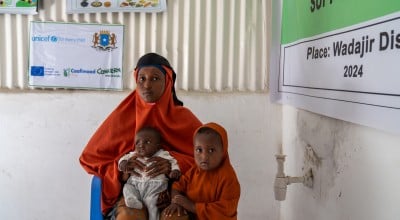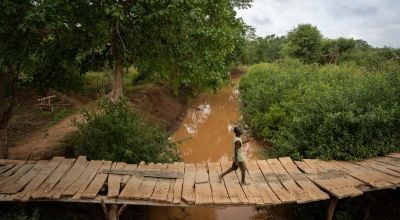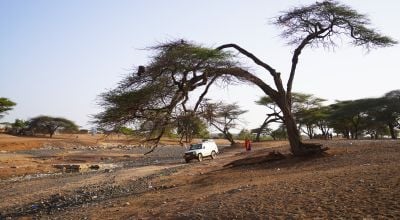
Read our 2024 annual report

Knowledge Hub
International community must “dig deep” to help South Sudan and Somalia
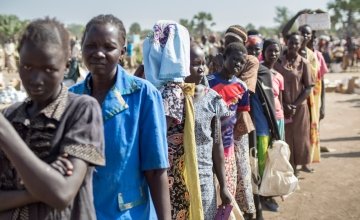
Just days after famine was declared in parts of South Sudan, the UN has also called for immediate action to prevent famine occurring in Somalia, Nigeria and Yemen. Concern's Regional Director for the Horn of Africa, Feargal O’Connell, urges the international community to respond.
As a result of this unprecedented global food crisis, 1.4 million children are acutely malnourished and over 20 million people are at risk of starvation.
The scale of the food crisis in east Africa is unprecedented and with $4.4 billion in humanitarian funding needed by the end of next month to avert a catastrophe, the global humanitarian response is at breaking point.
When does a mass food insecurity become a famine?
Our team in South Sudan has been witnessing deteriorating food security in the country for a year now, but only this week did the UN declare a famine in Unity State and Northern Bahr el Ghazal. When does mass food insecurity become classified as a famine?
According to standards used by the UN, famine can be declared only when certain defined levels of mortality, malnutrition and hunger are reached. The criteria are: at least 20 per cent of households in an area face extreme food shortages with a limited ability to cope; acute malnutrition rates exceed 30 per cent; and the death rate exceeds two persons per day per 10,000 persons. It sounds very technical but ultimately we’re talking about real people on the brink. The level of suffering I’ve seen in South Sudan is the worst of fourteen years in humanitarian work.
Scaling up operations in South Sudan
The famine in South Sudan is a result of continued conflict and its social, economic and political effects. Massive levels of displacement have disrupted livelihood and agricultural patterns, creating a situation where 100,000 people are now facing starvation and 4.9 million people are extremely food insecure. As the outflow of refugees from South Sudan increases past the million mark, there is little indication that the situation will improve.
Our team has been responding to the deepening food crisis over the past twelve months, reaching over 100,000 people with large-scale general food distributions. However, in response to the famine declaration we are significantly scaling-up our operations.
Our response efforts cover emergency nutrition, food distributions, WASH and emergency shelter. We’re working with a national partner in one of the two famine-affected counties, providing nutrition services to children under five, and pregnant and breastfeeding women.
Critically, we’re continuing our long-term development and resilience work to ensure that communities can mitigate against emergency and disaster in years to come.
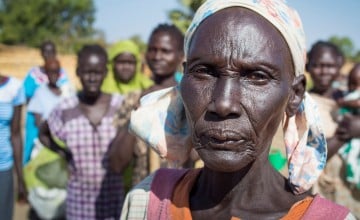
How we’re responding in Somalia
A combination of climate change, irregular rainfall patterns, and conflict have contributed to the deteriorating food crisis in Somalia, however there is still a window in which we can prevent famine.
Given that there has been a significant humanitarian scale-up in the country, we’re optimistic that famine will be averted. However, if the Gu rains over April and May prove weak, we can expect a significant deterioration.
Our experienced team on the ground in Somalia have an emergency response underway providing cash transfers, emergency health and nutrition activities, WASH activities (including water trucking) in response to cholera outbreaks.
Conflict causes food insecurity
Prolonged conflict, among other factors, has thrust South Sudan, Somalia, Nigeria and Yemen into a deep and catastrophic food crisis. A lack of action could result in thousands of innocent women, children and men dying because of hunger and this must not be allowed to happen. In this grave situation, the international community has no option but to dig deep and do everything we can to respond.
It is an abomination that we can put rovers on Mars but we can’t stop people dying from hunger. It is a stain on our collective conscience.
How can you help?
Support our famine appeal and help prevent the spread of suffering.
Read more



